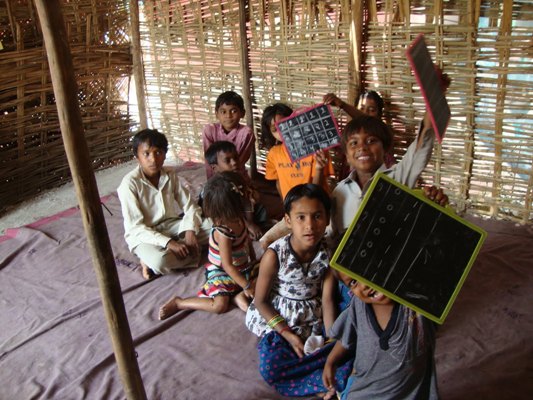According to a new United Nations report, in 2009 around 54 per cent of children in India were enrolled for pre-school education as compared to around 48 per cent in China. Comparatively, in 2000 around 22 per cent of children in India were in pre-schools as compared to 38 per cent in China. The vastly improved numbers in India have helped South Asia earn the distinction of achieving the fastest growth in pre-school education in the world.
The joint report of UNICEF and UNESCO – ‘Asia-Pacific End of Decade Notes on Education for All – Goal 1: Early Childhood Care and Education (ECCE)’ – notes that ‘the number of children enrolled in nursery and kindergarten in South Asia has nearly doubled over the last decade with 47 per cent children enrolling in pre-primary programs in 2009 as against only 25 per cent in 2000.’
Lieke van de Wiel, UNICEF South Asia’s Regional Adviser for Education, said the report showed that early childhood care and education had gained ground in the region. She said, ‘Governments in South Asia and partners in education should be congratulated for this significant achievement of providing young children aged 3 to 6 years a chance to enrol in pre-primary programs, thus fulfilling their right to an education.’

The report has attributed the growth in pre-school education to increase in number of private nursery schools and the government’s Integrated Child Development Scheme (ICDS), where pre-school education was introduced a few years back. At the same time, the report has highlighted that with increase in enrolment the gender inequality has also increased. More boys were enrolled than girls, thereby creating an educational disadvantage for girls.
A statement released in New Delhi said: ‘UNICEF and UNESCO hope the report will be used to advocate for more support for quality ECCE; to develop and reform policies to expand ECCE, particularly to the most marginalized children; and to campaign for the inclusion of ECCE in the post-2015 development goals.’
The report examines progress and challenges to early childhood programmes in Asia and the Pacific and includes recommendations on what needs to be done to support young children, their families and communities in all the areas where the child is growing – physically, emotionally, socially and intellectually.
Exposure to quality ECCE is crucial as this takes place at a time of tremendous brain development. The report notes the growing evidence that children who have participated in high-quality ECCE programmes exhibit considerable gains in social, educational, health and intellectual spheres than those who have not participated.
Yet, public funding for ECCE remains negligible. Although ECCE policies are in place, there are significant gaps in implementing the policies.
“What is needed in Asia and the Pacific is that ECCE policies should focus more on the vulnerable and disadvantaged groups,” said Alisher Umarov, chief of education, UNESCO New Delhi cluster office for Bangladesh, Bhutan, India, Maldives, Nepal and Sri Lanka. There is growing evidence that marginalized children benefit the most from ECCE. Expanding quality ECCE to the most marginalized, therefore, could help promote equity and inclusion in education.
